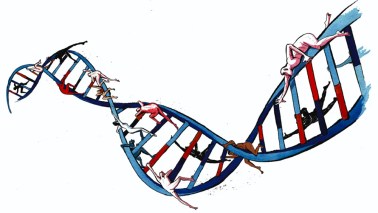At Labour Uncut, Dan Hodges has written a very good, very interesting piece on the demise of the Brownites and how, when the end came, Brown was compelled to rely upon Peter Mandelson and Alistair Campbell to scramble a strategy by which Labour might miraculously cling to power. As Hodges portrays it:
As the battlements yielded, what of his own praetorian guard? Where were his champions, his own retinue of advisors?
The collapse of the Brownite inner-circle, as a political event distinct from the fall of Brown himself, is one of the strange untold stories of the Labour government. If, as is generally perceived, Gordon was one of the two pillars of New Labour, then those around him were fundamental to New Labour’s success. Like them or loathe them, the Brownites constructed the economic programme and strategy that brought us to power. They successfully drove through that programme when in office, while simultaneously strengthening Brown’s personal grip on the succession. They delivered him the keys to Downing Street without challenge, and with sufficient political capital immediately to secure his own mandate by means of a snap election.
And then they splintered.
You may quibble with some of the judgements here but that’s not the point. The structure of New Labour was such that while the twin Princes Blair and Brown dominated the party, there was little room for their subordinates to grow or establish a political hinterland themselves that would give them the credibility to offer truly considered or independent counsel. Those who attempted to create a powerbase were, like Alan Milburn, sabotaged or, like Alistair Darling quietly exiled.Look up “notable Brownites” on Wikipedia, and you get some familiar names. Alistair Darling. Douglas Alexander. Ed Miliband. Nick Brown. Ed Balls. At the beginning they were blood brothers. By the end they were recreating the final scene in Reservoir Dogs: everyone pointing guns at everyone else.
By the end, the only people with the heft to speak for Brown were his old enemies Campbell and Mandelson. None of the others carried enough political weight either because they’d become objects of suspicion or because they were little more than their master’s creation.
It’s a question of talent too. No party is blessed with a surfeit of the stuff but Brown’s cabinet was, by the end, a threadbare outfit. Who were the figures of real substance? In part that decline is simply the price of 13 years in power. But neither Blair nor Brown ever managed to promote or support new talent. In part that was due to the squabbling at the top and the fact that Brown could not be moved from the Treasury. There was only room for two in the New Labour marriage – as Mandelson discovered to his cost. But the best managers – to dip into football-speak – have the ability to build more than one great team. Neither Blair nor Brown could achieve that.
Hodges suggests that Gordon tried to build a new team but that the effort failed spectacularly:
[At] the time of the handover the Brownites were still a cohesive and formidable political force. Until Brown himself chose to dilute their influence. Geoff Hoon was appointed chief whip, over Nick Brown. Stephen Carter was parachuted in and Spencer Livermore unceremoniously dumped. Peter Mandelson secured his umpteenth, and most spectacular, rehabilitation.
This changing of the guard was explained at the time as Gordon drawing a line under the factionalism of the Brown/Blair years. And he was duly praised for his new collegiate approach to government.
But there’s a great difference between spending years plotting for power and then actually being able to exercise that power not least since the principle idea, at least as it seemed from the outside, was that the reason why Gordon needed to be Prime Minister was that he wasn’t Tony and anyway he was owed the crown. That’s not enough.Except that the wheels came off. “A shambles”. “Dysfunctional”. “Lightweight”. Just some of the descriptions of Brown’s Downing Street. How many of those phrases would have been used in connection with Gordon and his circle prior to the succession? ‘Ruthless’ – probably. ‘Obsessive’ – possibly. ‘Controlling’ – definitely. But shambolic? Lightweight? No.
And yet for all the failures of the Brownites – and none of them, least of all the leadership contenders has anything like the heft Blair and Brown possessed back in the early 1990s (I distinctly remember thinking that Blair should have succeeded Kinnock) – they have the last laugh. Whither Blairism now?
It’s a striking irony that the man who won three elections for Labour has, judging by the leadership contest, been wiped from the party’s history while the spirit of the unloved fellow who led the party to defeat still animates the party leadership. It’s as though Macbeth’s descendents inherited the Scottish throne. There’s no Blairite candidate in this contest, just watered down Gordons.
Maybe that’s appropriate since, whatever else you may say about them, the Brownites could always do opposition. As for the fate of Blairism? Well, that’s stuff for another post…






Comments